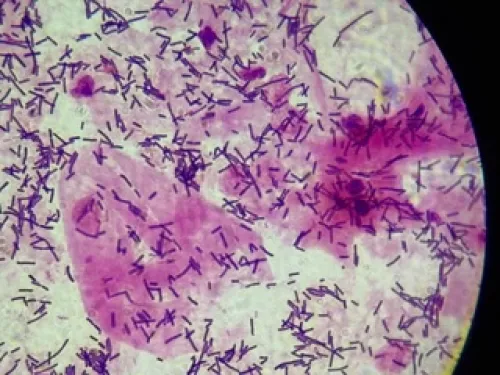A healthy vaginal environment dominated by Lactobacillus crispatus is associated with a lower risk of HIV acquisition among women. However, only a fraction of women worldwide, and even fewer in Africa, have vaginal microbiomes dominated by L. crispatus.
Now, a groundbreaking study led by Drs. Anke Hemmerling and Craig Cohen from UCSF’s Department of Obstetrics, Gynecology & Reproductive Sciences, Doug Kwon and members of the Benioff Center for Microbiome Medicine, and Caroline Mitchell at Massachusetts General Hospital/Ragon Institute, and Thumbi Ndungu at the University of KwaZulu-Natal in South Africa is shedding light on a promising intervention. The study investigates a live biotherapeutic product comprised of L. crispatus CTV-05, known as LACTIN-V (developed by Osel Inc.), which could significantly lower the risk of HIV acquisition among young women in Africa.
Live organisms have been utilized as probiotics for many years, but live biotherapeutic products were first designated as a drug class by the FDA in 2012. LACTIN-V was the first commensal Lactobacillus product to undergo the Investigational New Drug (IND) regulatory pathway. It colonizes the vagina at high concentrations and has been shown to reduce the risk of recurrent bacterial vaginosis.
In this study, the research team conducted a randomized, placebo-controlled Phase 2 clinical trial to assess how vaginally applied LACTIN-V impacts the cervicovaginal microbial balance and HIV susceptibility in young South African women at high risk of HIV acquisition.
Over a four-week period, most women treated with LACTIN-V developed a healthier vaginal environment compared to those given a placebo. Although the benefits diminished after the treatment was stopped, the initial results are promising.
A key finding of the study was that the placebo group showed a significant increase in the number of cells in the cervix that HIV targets, while those treated with LACTIN-V did not. This suggests that LACTIN-V may help reduce the number of HIV target cells, potentially lowering the risk of HIV infection.
“This study points to the potential of LACTIN-V to reduce female HIV acquisition,” said Dr. Cohen.
“Advances like the promising findings from this study are pivotal in our ongoing efforts to improve women’s health globally,” said. Dr. Kwon.
What’s particularly exciting is that LACTIN-V, originally isolated from an American woman’s microbiome, was found to be safe and acceptable to the young women who participated. This is significant given that previous studies in Africa with vaginal probiotics have not shown such success.
The study, published today in Lancet Microbe, is the first to test a vaginal live biotherapeutic product in Africa. A larger follow-up study is planned to better understand the long-term effects and potential of this treatment. The full article can be found here https://www.thelancet.com/journals/lanmic/article/PIIS2666-5247(24)00305-7/fulltext.
For more information and detailed findings, please contact the research team.
Gram stain of vaginal Lactobacillus isolates. Source: Caroline Mitchell, the Ragon Institute
About the Ragon Institute
The Ragon Institute of Mass General Brigham, MIT, and Harvard was established in 2009 with a gift from the Phillip T. and Susan M. Ragon Foundation, with a collaborative scientific mission among these institutions to harness the immune system to combat and cure human disease. Focusing on global infectious diseases, the Ragon Institute draws scientists, clinicians and engineers from diverse backgrounds and areas of expertise to study and understand the immune system with the goal of benefiting patients.
For more information, visit www.ragoninstitute.org
